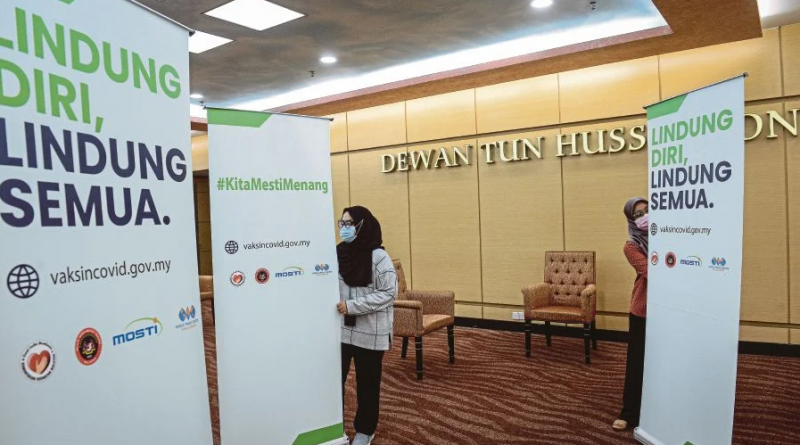‘Periodic jabs may be needed’
PERIODIC vaccinations may be common practice in the near future, at least for those in the high-risk group, health experts said.
Due to uncertainty over the existing vaccines’ period of efficacy and the constant emergence of Covid-19 variants, virologists and epidemiologists said it was possible annual jabs might be required, similar to yearly flu shots.
“From an epidemiology point of view, yes, it (annual or periodic jabs) is possible,” Associate Professor Dr Malina Osman, an epidemiologist and biostatistician at Universiti Putra Malaysia told the New Straits Times.
UPM’s Professor of Medical Microbiology and a consultant clinical microbiologist Professor Dr Zamberi Sekawi said periodic vaccinations might be needed because of the emergence of new variants of the Covid-19 virus.
Dr Zamberi said vaccines must be updated to cope with new virus types, but this would prove to be challenging as there was a lack of information on the minimum level of antibodies needed for immunity.
“Based on experience with other vaccines, there may be a chance that we have to get annual vaccinations.
“Covid-19 is still new, there are many things we still don’t know about it, such as how long our antibodies can protect us from re-infection.
“So far, the longest duration (of vaccine efficacy) is six months. We hope it will be longer. We are still looking at the situation now since we don’t have enough experience dealing with Covid-19,” he said.
The World Health Organisation (WHO) said trials showed that several Covid-19 vaccines were highly effective, but new variants were causing vaccine manufacturers worldwide to constantly update their vaccines to cover the mutations.
It was reported that Pfizer’s ongoing trial indicated that the company’s two-dose vaccine remains highly effective for at least six months, and likely longer.
Moderna’s vaccine, which uses similar technology as Pfizer’s, also showed notable levels of antibodies six months after the second shot.
The country’s vaccinations programme aims to achieve herd immunity. However, Universiti Malaya’s Professor of Epidemiology and Public Health Medicine Specialist Dr Sanjay Rampal said 82 per cent of the population would need to be immunised to achieve that.
He said this would take a while, adding that high global incidence also increased the frequency of mutations.
“The current generation of vaccines may have decreased efficacy against these new strains with a possibility of being completely ineffective against a future strain.
“We may have to adopt a
long-term, risk-based strategy and offer vaccines that are periodically calibrated for those at higher risk of severe complications,” he said.
Former Malaysian Medical Association president Datuk Dr N.K.S. Tharmaseelan said annual Covid-19 vaccinations should cover the new variants.
“Researchers, health officials and scientists all over the world are working to comprehend how these variants affect the virus’ behaviour, including their impact on the effectiveness of the vaccines.
“Manufacturers and the programmes using the vaccines may have to adjust to the evolution of the Covid-19 virus.
“For example, vaccines may need to incorporate more than one strain when in development.
“Rather than annual vaccinations, booster shots may be an alternative. We should be looking preventing future variants of the Covid-19 virus.”
Source: NST




